As optometrists, we believe strongly in preventative care. This is because many eye diseases are preventable, and some eye diseases have no cure. Our doctors can provide you with information on what you can do to reduce the risk of developing preventable eye disease. Lifestyle and nutrition factors play a huge role in your likelihood of developing diseases such as diabetes, hypertension, cataracts, AMD, Dry Eye and more. If we do not suffer from eye disease ourselves, most of us know someone, or are related to someone who has been affected by sight-threatening eye disease. Although nutrition plays a role in many diseases, the 2 diseases for which nutritional supplements plays the biggest role are Age-Related Macular Degeneration (AMD), and Dry Eye Disease.
Macular Degeneration
Unfortunately, to study the effect of nutrition and lifestyle on AMD, we must look at very long-term studies that take years to complete and are based on speculation of what may and may not be of benefit. AMD is a debilitating disease of the central retina for which there is no cure. There are a variety of risk factors for the disease, some of which are genetic, and some of which are modifiable. Most of our current knowledge comes from the AREDS studies. This has been combined with current knowledge and schools of thought on the benefit of certain protective pigments and anti-inflammatory mediators.
From the AREDS study, it is clear that there is some benefit derived from anti-oxidant vitamins A, C, E as well as Lutein and Zinc in the prevention of AMD. The study did show a reduction in the advancement of moderate disease to severe disease in 25% of cases. Unfortunately, the results of the AREDS study were not applicable to those at risk, or those with mild disease. Furthermore, new data on genetics shows that some patients may even do worse with high doses of supplemental zinc. The debate and studies in this area are still ongoing, but it is prudent in the interim to avoid high doses of zinc. There is a large volume of data showing that the carotenoids: lutein, zeaxanthin and meso-zeaxanthin are very important in macular health in the early stages of AMD, and are safe to take regardless of genetic profile.
Too much supplementation can be harmful. For instance too much vitamin A can be toxic to the liver, too much vitamin E can interfere with blood thinners, and zinc interferes with absorption of many medications and has been associated with Alzheimers and prostate cancer. The ideal source of vitamins and minerals is of course obtained through proper nutrition, and here are your best sources:
Lutein/Xeaxanthin – green, leafy vegetables; yellow, orange and red fruits and vegetables; eggs; poultry
Vitamin A – milk, eggs, liver, fortified cereals, darkly colored orange or green vegetables (such as carrots, sweet potatoes, pumpkin, and kale), and orange fruits such as cantaloupe, apricots, peaches, papayas, and mangos.
Vitamin C – red berries, kiwi, red and green bell peppers, tomatoes, broccoli, spinach, and juices made from guava, grapefruit, and orange.
Vitamin E – vegetable oils, nuts, green leafy vegetables, avocados, olives, wheat germ, and whole grains
Zinc – oysters, liver, beef, lamb, crab, wheat germ, sesame and pumpkin seeds, dark chocolate, peanuts
There are many easy things you can do to increase your intake of these healthy nutrients. If you would like a place to start, pop in to our office for a free book full of information and recipes! We can also give you evidence-based recommendations on supplements.
Your general health, other medications/supplements, age, and risk or presence of AMD will determine the recommendation given. It is important that this advice be discussed with your family physician before embarking on any long term supplementation. It is also important to control other modifiable risk factors including cessation of smoking and exposure to second hand smoke (smoking increases your risk by 6 times!). UV exposure can also increase your risk of AMD, especially if you are young.
Dry Eye Disease
Dry Eye Disease is chronic and has no cure. The goal is to manage symptoms and improve quality of life by addressing the factors contributing to the inflammation. Our tear film and blinking mechanics work in harmony to lubricate, protect, and maintain the health of your eyes. Dysfunction of any of these components is usually due to inflammation. If the inflammation is chronic, tissue damage can occur, leading to long term scarring and poor blinking mechanics. Tear production is affected by many medications, including antidepressants, over-the-counter allergy pills, and even birth control pills. Alcohol and caffeine make dry eyes worse, as does inadequate water intake and poor diet. There are also many systemic inflammatory diseases such as arthritis, lupus, and other auto-immune conditions that contribute to dry eyes. Controlling inflammation through diet, supplementation, and and good hygiene is the foundation for controlling Dry Eye Disease.
Every person is unique. Foods that may cause inflammation in one person, may have no effect on another. For this reason, it is difficult to prescribe an ideal “anti-inflammatory” diet. Consultation with your family physician and/or a nutritional expert is a good place to start. What we DO know is that processed foods cause inflammation. More specifically, the pro-inflammatory omega-6 fatty acids found in most processed foods, oils and fats. Omega-3 on the other hand, is used by the body to combat inflammation. Specifically, the DHA and EPA fatty acid components of Omega-3. Although these beneficial fatty acids are most easily obtained through fatty fish such as salmon, trout and tuna, there are other risks involved with eating large amounts of fish due to modern fishing and farming practices. Small fish such as anchovies and sardines are a better source, but consuming the quantities needed for beneficial effect would be next to impossible. For this reason, high potency omega-3 supplementation is highly beneficial.
In addition to it’s well-studied beneficial effects on heart and brain health, Omega-3 supplementation (especially in the triglyceride as opposed to ethyl ester form) also greatly aids in the treatment of Dry Eye disease. Studies show improvement in the quality of the tear film and improvement in symptoms after 6 weeks of at least 1500mg of EPA+DHA supplementation. Because the nutritional supplement industry is unregulated in Canada, it can be difficult to know which ones meet label claims and are high potency. For instance, some pills claim to be 1000mg of omega-3, but when you read the label, there may be only 200mg of EPA+DHA, meaning 80% of the pill is useless “fish fat.”. Download or read our guide here. Our optometrists can also discuss this in more detail at your visit.
Frequently Asked Questions:
Over the counter AREDS formulations often contain high doses of Zinc. The recommended daily allowance is 11mg, and most formulations contain 80mg! This high Zinc dose was used in the studies before we had mapped the human genome and understood the genetic alleles specific to AMD. We now know that as many as 25% of people can have their AMD progress faster with high dose Zinc. For this reason, we do not recommend these formulations for our patients.
Yes, Lutein is one of the carotenoids or “pigments” that serve a protective function in your retina. However, it is only one of the the 3 protective pigments found to be beneficial in reducing the progression of macular degeneration. It’s been shown that the three carotenoids compete for absorption in the gut, and zeaxanthin and meso-zeaxanthin are also important pigments found in the retina. There have been a number of studies showing the benefits of a balanced supplement containing all 3 carotenoids. There are currently 2 formulations in the Canadian market, MacuHealth and Early Defence. Your optometrist can discuss more about supplementation during your eye exam.
Omega-3 supplements are made by processing the oils found in small fish. During this process, the molecular structure changes from a triglyceride (the form found in nature) to an ethyl-ester. This ethyl-ester is a poorly absorbed form of Omega-3 and must be taken in higher doses to have the same effect as a triglyceride. High quality omega-3 supplements go through a process of “re-esterification” that puts the omega-3 into its more bioavailable (natural) form. Taking a triglyceride (or re-esterified) omega-3 leads to higher blood levels and greater efficacy. Higher potency supplements also require fewer pills (or less liquid) to get the minimum 1500mg of EPA+DHA found to be clinically effective. Read more here.
Yes! Fish get their omega-3 from Algae, so the original source is actually a plant. The problem is that it needs to be concentrated to reach an effective dose. There are some good quality Vegan omega-3 supplements on the market. Again, try to get 1500mg per day to get relief from dry eye symptoms.

Dr. Andrea Lasby Optometrist (F.A.A.O., F.S.L.S.)
Dr. Lasby is a Calgary native and partner at Mission Eye Care. She is residency trained in corneal disease and the fitting of custom scleral lenses for adults and children including babies who have undergone cataract removal (infant aphakia). She is current president of the Alberta Association of Optometrists.






